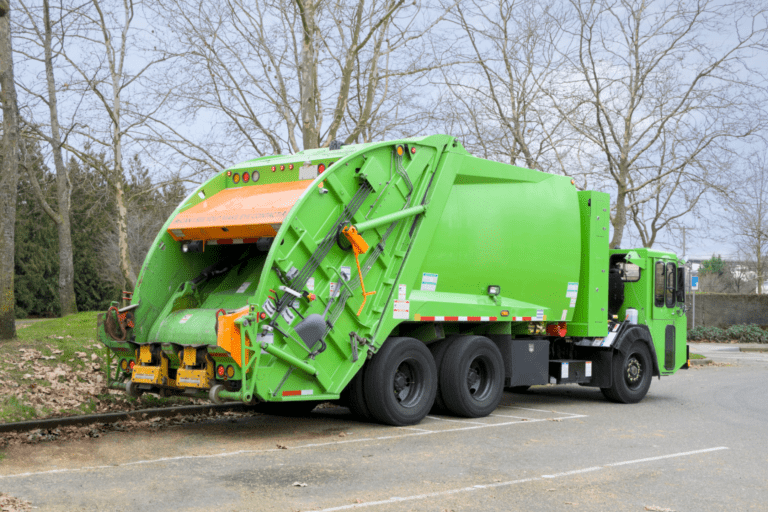Fleet managers have a significant responsibility to manage the fuel consumption and costs of their organization’s vehicles. Fuel is one of the most critical expenses for a fleet, and it is crucial to manage this component effectively to keep costs down and ensure vehicles are operating efficiently.
In this article, we will explore fuel management strategies and cost reduction techniques that fleet managers can use to optimize their fuel usage and reduce expenses.
Fuel Management Strategies for Fleet Managers
Track and Monitor Fuel Consumption
The first step in effective fuel management is to track and monitor fuel consumption. Fleet managers should establish a baseline for fuel consumption and then track it over time to identify trends and anomalies. This information can help fleet managers identify areas where they can improve fuel efficiency and reduce costs.
There are several ways to track and monitor fuel consumption, including:
- Fuel cards: Fuel cards can help fleet managers monitor fuel consumption by tracking fuel purchases and providing detailed reports on fuel usage.
- Telematics: Telematics technology can track fuel consumption by monitoring vehicle performance, including fuel economy, idle time, and driving behavior.
- Fuel management software: Fuel management software can help fleet managers track fuel consumption, generate reports, leverage AI-powered data cleaning, and identify opportunities to improve fuel efficiency.
Optimize Vehicle Routes
Another fuel management strategy for fleet managers is to optimize vehicle routes. Routing optimization can reduce fuel consumption and costs by reducing the distance traveled and minimizing idle time.
Fleet managers can use routing software to create optimized routes that factor in traffic conditions, road closures, and other variables. This software can also help fleet managers identify opportunities to combine multiple trips into a single route, reducing the number of miles driven and fuel consumed.
Reduce Vehicle Idling
Vehicle idling is a significant contributor to fuel consumption and costs. Fleet managers can reduce idling by establishing policies and procedures that discourage unnecessary idling. For example, they can require drivers to turn off their engines when parked or waiting for extended periods.
Fleet managers can also use telematics technology to monitor idling and identify drivers who may be idling excessively. This information can help fleet managers coach drivers on more fuel-efficient driving habits and reduce unnecessary idling.
Maintain Vehicles Regularly
Regular vehicle maintenance is critical for fuel efficiency and cost reduction. Well-maintained vehicles operate more efficiently and consume less fuel than poorly maintained vehicles. Fleet managers should establish a regular maintenance schedule for each vehicle in their fleet and ensure that maintenance is performed on time.
Maintenance tasks that can improve fuel efficiency and reduce costs include:
- Regular oil changes
- Proper tire inflation
- Regular tune-ups
- Air filter replacements
Train Drivers on Fuel-Efficient Driving Habits
Driver behavior is a significant factor in fuel consumption and costs. Fleet managers can reduce fuel consumption and costs by training drivers on fuel-efficient driving habits.
Some tips for fuel-efficient driving include:
- Accelerating and braking smoothly
- Maintaining a steady speed
- Avoiding rapid acceleration and braking
- Reducing speed on the highway
Fleet managers can also use telematics technology to monitor driver behavior and provide feedback to drivers on their driving habits. This information can help drivers improve their fuel efficiency and reduce fuel consumption.
Cost Reduction Techniques for Fleet Managers
Choose Fuel-Efficient Vehicles
One of the most effective ways to reduce fuel consumption and costs is to choose fuel-efficient vehicles. Fleet managers should research and compare the fuel economy of different vehicles before making purchasing decisions. The US Department of Energy maintains a database of fuel economy ratings for cars and trucks, which fleet managers can use to compare the fuel economy of different vehicles. In addition to fuel economy, fleet managers should also consider other factors that can impact fuel consumption, such as vehicle weight, size, and engine type. Choosing the right vehicles for the fleet can significantly reduce fuel consumption and costs over time.
Implement a Fuel Card Program Implementing a fuel card program can help fleet managers reduce fuel costs by monitoring fuel consumption and ensuring that drivers are purchasing fuel at the most cost-effective locations. Fuel card programs can also provide detailed reports on fuel consumption and help identify opportunities for fuel savings. Whip Around recommends Wex and Fleetcor as fuel card providers because they offer several benefits to fleet managers, including:
- Wide Acceptance: Wex and Fleetcor fuel cards are widely accepted at fuel stations across the country, giving fleet managers access to a large network of fueling options.
- Fuel Discounts: Both Wex and Fleetcor offer fuel discounts at participating fuel stations, helping fleet managers save on fuel costs.
- Detailed Reporting: Wex and Fleetcor fuel cards provide detailed reporting on fuel consumption and costs, enabling fleet managers to monitor fuel usage and identify opportunities for cost savings.
- Integration with Whip Around: Both Wex and Fleetcor fuel cards integrate with Whip Around’s fuel tracking module, enabling fleet managers to automate fuel data entry and monitor fuel usage in real time
Consider Alternative Fuels
Alternative fuels, such as biodiesel, natural gas, and electricity, can provide cost savings and environmental benefits for fleet managers. These fuels can be used in dedicated vehicles or in vehicles that have been converted to use alternative fuels. Fleet managers should research and evaluate alternative fuels to determine if they are a viable option for their fleet.
They should also consider the availability and cost of alternative fuels in their area and any potential infrastructure changes that may be required to support alternative fuel usage.
Use Fuel-Saving Technologies
There are several fuel-saving technologies that fleet managers can use to reduce fuel consumption and costs. These technologies include:
- Idle reduction technologies: Idle reduction technologies can automatically shut off vehicle engines when parked or idling for extended periods.
- Aerodynamic improvements: Aerodynamic improvements, such as side skirts and trailer tails, can reduce wind resistance and improve fuel efficiency.
- Low rolling resistance tires: Low rolling resistance tires can reduce friction and improve fuel efficiency.
Fleet managers should research and evaluate these technologies to determine if they are a viable option for their fleet.
Conclusion
Effective fuel management and cost reduction strategies are essential for fleet managers to optimize their fuel usage and reduce expenses. Fleet managers can track and monitor fuel consumption, optimize vehicle routes, reduce vehicle idling, maintain vehicles regularly, and train drivers on fuel-efficient driving habits to improve fuel efficiency and reduce costs.
In addition to fuel management strategies, fleet managers can also use cost reduction techniques, such as choosing fuel-efficient vehicles, implementing a fuel card program, considering alternative fuels, and using fuel-saving technologies to reduce fuel consumption and costs.
By implementing these strategies and techniques, fleet managers can optimize their fuel usage and reduce expenses, contributing to the success and profitability of their organization’s fleet operations.
Whip Around offers an advanced fuel tracking module that integrates with major telematics providers, as well as fuel card providers like Wex and Fleetcor, to provide fleet managers with comprehensive fuel usage and cost data. This fuel tracking module is available on Whip Around’s standard plan, making it accessible to fleets of all sizes.
![]()
With Whip Around’s fuel tracking module, fleet managers can monitor fuel consumption and identify potential fuel savings opportunities. This module enables fleet managers to:
- Monitor fuel usage in real-time: The fuel tracking module enables fleet managers to track fuel consumption for individual vehicles, drivers, and routes, providing real-time fuel usage data.
- Identify fuel-saving opportunities: Fleet managers can use the fuel tracking module to identify fuel-saving opportunities, such as reducing idling time, optimizing routes, and selecting fuel-efficient vehicles.
- Analyze fuel consumption data: Fleet managers can utilize AI-powered data cleaning and analyze fuel consumption data over time to identify trends and areas for improvement, such as identifying drivers or vehicles with high fuel consumption.
- Automate fuel data entry: With integrations to major telematics providers and fuel card providers like Wex and Fleetcor, fuel data is automatically recorded and integrated into Whip Around’s system, reducing manual data entry and improving data accuracy.
Fleet managers can start with a trial to test the module’s features and speak to Whip Around’s team to learn more about how it can help them optimize their fuel usage and reduce costs.









